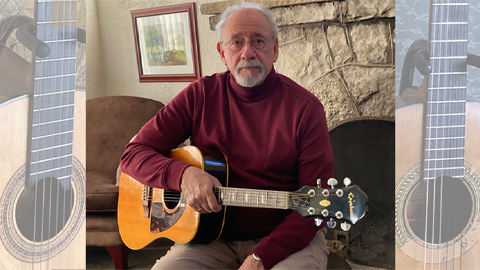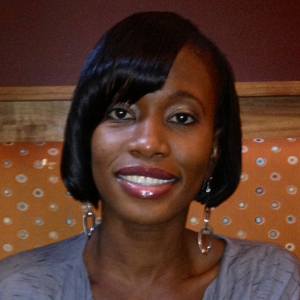From Sierra Leone to New York City
The brutalities that I witnessed during my youth in Sierra Leone could have propelled me toward a downward-spiraling path. My homeland was ravaged with violence and inhumane treatment as civil war broke out in 1999. Murder, rape and amputations were among the countless heinous crimes that I witnessed as an 11-year-old; these memories will haunt me forever.
Many families were torn apart. My family was not left unscathed by the violence, as my older sister was among the many girls who were kidnapped. After being raped and left to die, she somehow managed to survive but later developed a cardiac problem due to poor living conditions and unmet physiological needs. Witnessing such atrocity and my sister’s suffering, I knew even then that I wanted to become a medical doctor.
Through divine intervention and good fortune, the rest of my family escaped to Guinea and eventually relocated to Germany. The move uprooted me from all that I was accustomed to: Everything was alien to me. I had to face fresh challenges like language and culture, and I knew that in order to succeed in this new place, I had to adjust quickly. Though I was very young, I faced these obstacles squarely, learning the language within six months. Also, to better adapt to the German culture, I pushed myself to join a variety of extracurricular activities, including the basketball team, the track and field team, and the singing club.
After I graduated from high school with high academic standing, I continued nursing my passion to pursue a medical career by enrolling in a medical assistant program as well as interning at a private clinic. Unfortunately, I had to relocate again before I was able to complete the program.
In 2005, I moved to the United States with only $750. I did not know what obstacles and challenges awaited me as I navigated the busiest streets in New York City. Six months later, while staying with one of my elder sisters in the Bronx, I was fortunate to get a job as a waitress and bartender at a restaurant in Brooklyn. Two years later, I worked out my immigration situation and enrolled at a community college, where I obtained an associate’s degree as a medical assistant and graduated summa cum laude in 2009.
In 2010, I enrolled at Long Island University to pursue my bachelor’s degree in biology and a minor in chemistry. During my junior year, I encountered some difficulties in one of my classes; nonetheless, I worked hard on a daily basis, because success is when a person fails and is able to bounce back up and do it again. My grade point average improved considerably the following year.
At LIU Brooklyn, I have been a member of the Minority Biomedical Research Support/Research Initiative for Scientific Enhancement, which enables me to conduct numerous research projects in various areas of study. The MBRS/RISE program is designed to target minority students who show an interest in biomedical research. My LIU research has been featured on the local television and in publications from New York to Africa.
I am working with my mentor, Dong Kwon, at my home institution. My role in that research project is to examine the effects of polyamines on β-lactam antibiotics in Pseudomonas aeruginosa, a gram-negative, opportunistic bacterium that causes severe nosocomial infections in healthcare settings. This is an ongoing project that will be published early this year, and I will continue experimenting during my senior year.
In addition, under the excellent mentorship of Lisa Shantz at the Penn State Milton S. Hershey Medical Center, I participated for 10 weeks in the 2012 Summer Undergraduate Research Intensive Program. My project entailed investigating the mammalian target of rapamycin, or mTOR, which plays an important role in cell proliferation and survival. Based on previous research, we hypothesized that mTOR is a useful target in the prevention and treatment of nonmelanoma skin cancer. My aim was to test the effects of another drug, called Torin-2. While rapamycin inhibits only mTORC1, Torin-2 can inhibit both mTORC1 and mTORC2. Therefore, I examined the effects of Torin-2, and through extensive research, our lab was able to make significant breakthroughs, which are in the process of being published.
My strong interest in medicine has directed me in eagerly pursuing a combined degree that will enable me to achieve my unshakable goals of practicing medicine and conducting research. The ability of the scientific world to discover and make progress through research experiments that eventually lead to the development of new treatments in vast areas of science has fortified my desire to pursue a career as a physician–scientist.
Though I’m a full-time student, I also have two jobs to support my family in Africa and maintain a decent life here in New York. I am working as a medical assistant and as a restaurant manager. Being a medical assistant at a private clinic and working at a research lab has made me appreciative of both medicine and biomedical research. Conducting office procedures and assisting the doctor as well as interacting with patients and performing research experiments has left within me a deeper desire to pursue the combined degree. I have acquired a deeper understanding of medicine through scientific discovery. Through this academic journey, I’ve learned that scientific research is bigger than just the lab; it’s about making your contribution to the world so that the people of tomorrow can live better lives.
All the trials and tribulations that I went through have made me stronger and have encouraged me to make a difference in the world.
Enjoy reading ASBMB Today?
Become a member to receive the print edition monthly and the digital edition weekly.
Learn moreGet the latest from ASBMB Today
Enter your email address, and we’ll send you a weekly email with recent articles, interviews and more.
Latest in Opinions
Opinions highlights or most popular articles

A paleolithic peer review
You might think review panels have only been around for the last century or so. You would be mistaken.

Early COVID-19 research is riddled with poor methods and low-quality results
The pandemic worsened, but didn’t create, this problem for science.

So, you went to a conference. Now what?
Once you return to normal lab life, how can you make use of everything you learned?

My guitar companion
A scientist takes a musical journey through time and around the world.

Catalyzing change and redefining purpose
To mark Women’s History Month, Sudha Sharma writes about her journey from focusing on her own research program to being part of a collaborative COVID-19 project.

The power of sabbaticals
To mark Women’s History Month, Nicholas Rhind writes about learning techniques in other researchers’ labs that empower the work in his own.

